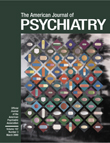Delirium After Ingestion of Mentholatum
To the Editor: We report the case of a patient with delirium associated with deliberate Mentholatum ingestion. Wernicke-Korsakoff syndrome appeared to be a comorbid condition in this patient, who also had malnutrition and a history of alcohol dependence.
Ms. A, a 63-year-old resident of a nursing home with a past history of alcoholism and ongoing nicotine dependence, was hospitalized on three occasions in a 1-year period secondary to confusional episodes. These episodes were found to be temporally related to the oral ingestion of Mentholatum, a topical analgesic. Ms. A had apparently been using Mentholatum as a mood-altering substance for up to 5 years. Family members and nursing home staff witnessed spontaneous incidents of Mentholatum ingestion followed by sudden episodes of euphoria, confusion, lethargy, agitation, odd behavior, and auditory and visual hallucinations.
The hospital’s psychiatry group was consulted on her third admission, when Ms. A’s symptoms had partially cleared but she continued to demonstrate confusion about the reasons for her hospitalization, impaired concentration, deficits in recent and remote memory, confabulation, lack of insight, and poor judgment. The results of neuropsychological testing revealed borderline intellectual functioning, confirmed significant memory impairment along with confabulated responses, and demonstrated deficits in visuospatial skills.
A physical examination was remarkable for an erythematous, edematous, and fissured tongue and generalized muscular atrophy. Respiratory findings were consistent with chronic obstructive pulmonary disease, lipid pneumonia, and mild hypoxemia. The results of a neurological examination revealed muscle fasciculations, tremors, a positive Romberg’s sign, poor coordination, nystagmus, and decreased deep tendon reflexes. Mild dilation of the lateral and third ventricles and mild central cerebral atrophy were evident on computerized tomography of the brain.
Ms. A’s hospital courses typically demonstrated decreasing confusion, improved but persisting recent memory deficits with mild confabulatory tendencies, and stable impairment in remote memory. The overall improvement in her status and the absence of any episodes of delirium during each hospitalization were presumed to be a result of the hospital-imposed cessation of Mentholatum ingestion.
Mentholatum ingestion appeared to be the etiology of the patient’s episodic delirium. Her other cognitive deficits, including persistent memory impairments, were thought to be due to multiple factors because of the coexistence of other potential insults to the brain, including alcohol dependence, malnutrition, and hypoxemia. A review of the literature did not reveal any other cases of Mentholatum ingestion but did show one case of intentional exposure, by Vincent van Gogh, to substances also present in Mentholatum, which resulted in episodic psychoses (1). Although Mentholatum is no longer marketed in the United States, several variants of Mentholatum and many other topical analgesics with similar ingredients are widely available as over-the-counter products. We report this case of delirium from Mentholatum intoxication because of its apparent rarity and to alert clinicians to the possibility of the ingestion of topical analgesics as an etiology of delirium.
1. Monroe RR: The episodic psychoses of Vincent van Gogh. J Nerv Ment Dis 1978; 166:480–488Crossref, Medline, Google Scholar



